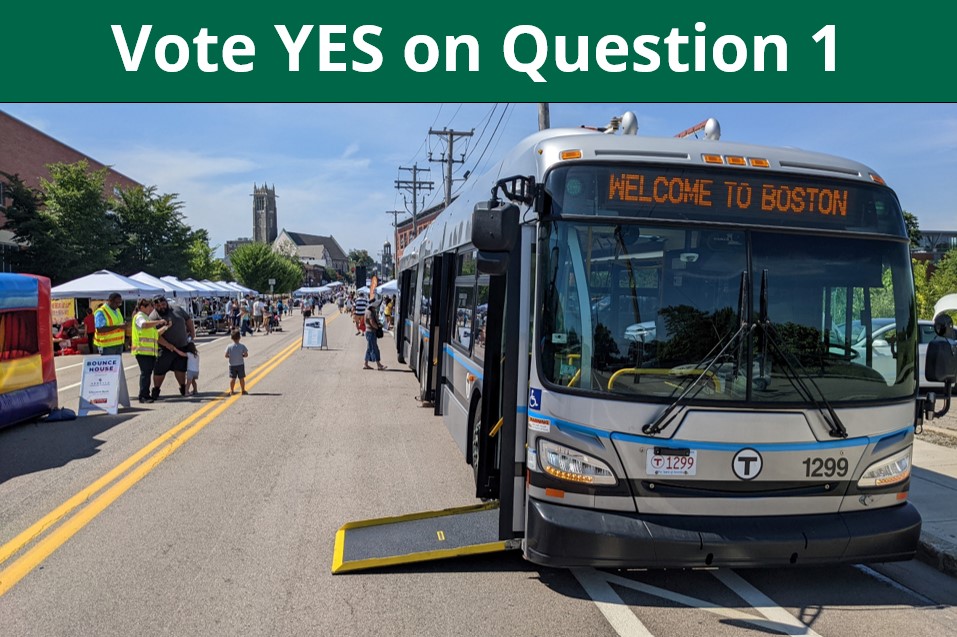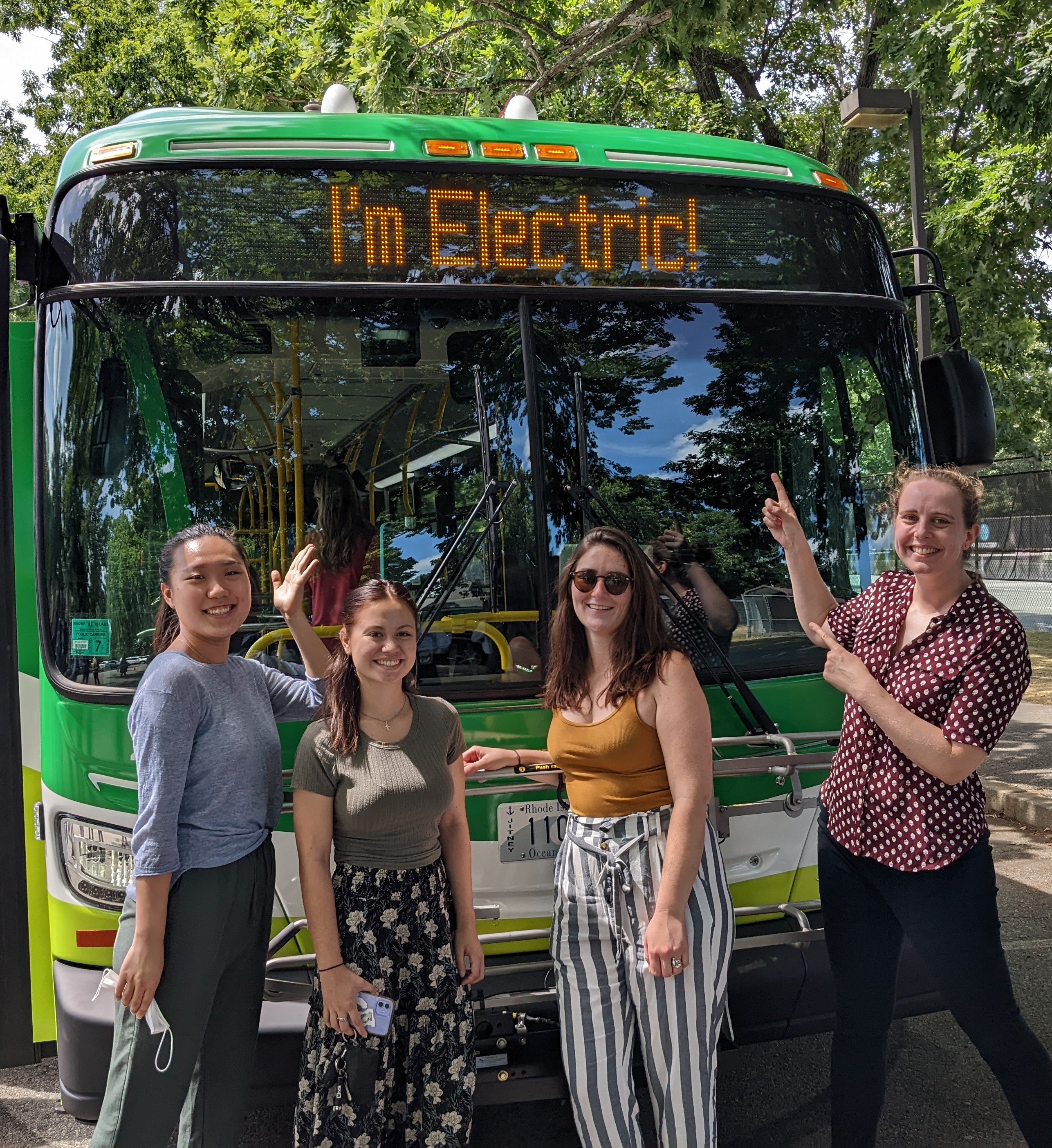What’s Needed in Rhode Island Energy EV Filing
We have been attending Rhode Island Energy’s (RIE’s) quarterly Power Sector Transformation sessions for a few...
 Green Energy Consumers is a 501(c)3 nonprofit, which means we cannot support or endorse a candidate running for public office in an election. However, we can – and do – support policy proposals, including ones being decided via a ballot question in an election. This fall, we urge you to VOTE YES on Question 1, the Fair Share Amendment. We see it as an important tool in the toolbox in the race to reduce greenhouse gas emissions. Here’s why.
Green Energy Consumers is a 501(c)3 nonprofit, which means we cannot support or endorse a candidate running for public office in an election. However, we can – and do – support policy proposals, including ones being decided via a ballot question in an election. This fall, we urge you to VOTE YES on Question 1, the Fair Share Amendment. We see it as an important tool in the toolbox in the race to reduce greenhouse gas emissions. Here’s why.
The Fair Share Amendment is a proposed amendment to the Massachusetts Constitution that would create an additional tax of 4% on a person’s annual income beyond $1 million. If you make less than $1 million/year, the Fair Share Amendment would not impact you; if you make more than $1 million/year, only the portion above $1 million would be subject to this additional tax. The revenue generated from this tax would be used for education and transportation – two places where we are in dire need of more investment across the Commonwealth. If passed, the Fair Share Amendment is expected to generate $2 billion in revenue yearly.
The Fair Share Amendment is a good idea for a lot of reasons, in our view. It raises funds progressively for two systems that benefit people across the Commonwealth – education and transportation. We’re all better off when kids and adults have better access to quality education and when our transportation system is in a state of good repair. But the Fair Share Amendment could impact the fight against climate change in Massachusetts by unlocking funds for the bedraggled backbone of our transportation system, public transportation.
The Fair Share Amendment specifically directs revenue to be used for “public education, public colleges and universities; and for the repair and maintenance of roads, bridges, and public transportation.” That last part is key. It’s a good idea to maintain roads and bridges for reasons of public safety but doing so has no impact on our state’s emissions. Expanding roads and highways generally has a negative impact, in the sense that it leads to increased emissions. But investing in public transportation – now there’s an idea!
Way back in 2018, the Baker administration established a Commission on the Future of Transportation in the Commonwealth, which was tasked with advising the Governor on transportation planning between 2020 and 2040. The final report and recommendations issued by that Commission declared: “Investing in and expanding public transit service is critical. Transit is not only the backbone of the Commonwealth’s economy, it is a lifeline for those who depend on it. It is essential that the Commonwealth builds upon what it has in order to develop a transit network that is as robust, reliable, and convenient to remain a viable option and choice for a greater number of people.”
We agree: public transit is the backbone of our transportation system. But, as you may have noticed (understatement of the year), thanks to decades of underinvestment, public transit is in dire straits across Massachusetts. The MBTA has had a string of terrible accidents, prompting an investigation and scathing safety report from the Federal Transit Administration. Regional Transit Authorities (RTAs) have had to cut back service over the years, and all agencies are struggling with a shortage of the drivers they need. The Fair Share Amendment could provide a sustainable, dedicated, progressively-raised source of revenue to support our transit agencies and lead to safer, more reliable, and perhaps even expanded transit service. And since communities of color and low-income communities in particular are more likely to use public transit, especially buses, investing in public transit is not only a matter of reducing congestion or reducing emissions, it’s a matter of justice as well.
At Green Energy Consumers, we’re big fans of electrifying public transportation. We were glad to see this year’s climate bill include a timeline of electrification for MBTA buses, and support for RTA electrification too. We need to keep to this schedule to meet our climate and public health goals, and we need more funding to do so. Fair Share could help us stay on track.
 Green Energy Consumers staff and an electric bus in RIPTA's fleet in Rhode Island. We need more of these in Massachusetts too!
Green Energy Consumers staff and an electric bus in RIPTA's fleet in Rhode Island. We need more of these in Massachusetts too!
The Fair Share Amendment will increase the pot of money available for public transit. It will not single-handedly solve the question of how to fund emissions reductions in the transportation sector; ultimately, it will be up to the Legislature to decide what portion of the revenue goes to education vs, transportation, or how the funds dedicated to transportation are divided up between roads and bridges vs public transportation. All of that will require continued attention and advocacy from people like you! But one thing is clear: the fair share amendment sets up a system where people with the highest incomes pay a little bit more to make sure that the state can invest in the systems that serve everyone. That’s just a good idea.
P.S. If you have questions about the Fair Share Amendment, we recommend this website. They have a great FAQ page as well. And our friends over at the Massachusetts Sierra Club and the Massachusetts Public Health Association are holding a webinar on Tuesday, October 25, at 6:00 PM. You can register for that webinar here.
We have been attending Rhode Island Energy’s (RIE’s) quarterly Power Sector Transformation sessions for a few...
We believe electric cars are great. They reduce emissions by about 75-80% compared to gasoline cars. And they cost...
Comments